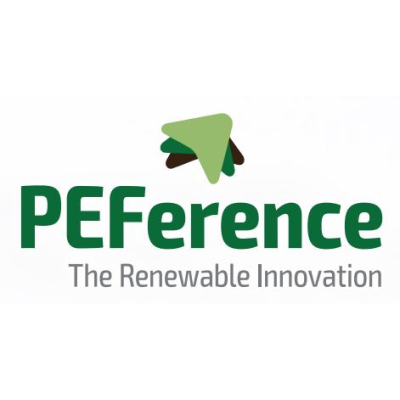
The European Chemicals Industry Action Plan marks a pivotal step towards building a greener, more competitive and more resilient chemical’s industry in Europe. CBE JU welcomes the recognition of bio-based chemicals as a strategic pathway for achieving climate neutrality, industrial decarbonisation and circularity in a key European sector.
As a strategic funding instrument accelerating the bioeconomy, CBE JU stands ready to contribute to the implementation of the action plan, mobilising innovation, investment and industrial uptake of bio-based solutions.
Delivering clean, competitive and resilient chemicals
The plan lays out concrete measures to:
Strengthen the EU’s industrial resilience by supporting critical production capacity for chemicals, including through a new Critical Chemicals Alliance.
Decarbonise and modernise the chemicals sector through clean and circular technologies.
Promote innovation, create lead markets and accelerate the uptake of safe and sustainable-by-design chemicals.
The plan recognises the potential of bio-based chemicals to contribute to the decarbonisation of the EU chemicals sector and to the development of new industrial value chains based on sustainably sourced European biomass. This reinforces the relevance of CBE JU’s investments in scaling up circular and renewable chemical production across Europe.
Flagship innovation for high-impact value chains
CBE JU is already supporting industrial-scale demonstration of bio-based chemical production across Europe. For instance, the flagship AFTER-BIOCHEM project is developing new value chains from non-food biomass, such as beet pulp and molasses, using a combination of anaerobic batch fermentation and esterification. The project produces a range of organic acids, including propionic, butyric, isobutyric, valeric, isovaleric and caproic acids, and converts them into high-value derivatives such as vinyl acetate monomer, cellulose acetate, ethyl acetate and ethyl propionate. These bio-based chemicals offer renewable, domestically sourced alternatives for use in flavourings, hygiene products, antimicrobials, pharmaceuticals and polymers, supporting the transition away from fossil-based inputs in fine chemicals.
The SWEETWOODS project is another example of EU leadership in bio-based chemistry. Its state-of-the-art biorefinery in Estonia is spurring the creation of a new industry and innovation hub focused on forestry-based chemicals and materials. The project uses hardwood residues to produce high-quality lignin and wood-based sugars, core building blocks for replacing fossil-derived materials in coatings, plastics, and other advanced applications.
Meanwhile, the PEFerence project is pioneering the production of FDCA, a platform chemical enabling fully bio-based and recyclable plastics like PEF. With strong performance and sustainability credentials, PEF has the potential to replace traditional PET and multilayer packaging in food and beverage sectors and can compete on cost with its fossil-based counterparts when produced at scale.
Scaling renewable chemical alternatives
Several CBE JU-funded projects are also converting agricultural residues and waste into chemical compounds compatible with existing fossil-based processes, ensuring cost-effective market integration. OPTISOCHEM, for instance, demonstrates the conversion of wheat straw into bio-isobutene derivatives used in adhesives, lubricants and high-performance materials.
These and many other CBE JU-funded projects show how bio-based chemicals can combine sustainability, performance and industrial relevance, while supporting Europe's twin transition, competitiveness and resilience.
A shared vision for a sustainable chemicals future
CBE JU welcomes the Action Plan’s commitment to:
Scaling up bio-based materials and biotechnology under the upcoming EU Bioeconomy Strategy (Q4 2025).
Promoting innovation through EU Chemicals Innovation and Substitution Hubs.
Mobilising EU funding under Horizon Europe (2025–2027) to accelerate the development of safer, more sustainable chemical substitutes.
Creating lead markets for renewable and circular solutions through the upcoming Circular Economy Act and green procurement initiatives.
Aligning EU and national investment priorities, including through support for Important Projects of Common European Interest (IPCEIs). Two potential IPCEIs relevant to the chemicals sector are under discussion: one on the biotechnology value chain, and another on circular advanced materials. The design of these projects is ongoing under the Joint European Forum for IPCEI (JEF-IPCEI).
Among other measures, the plan highlights fiscal incentives and tax measures to boost demand for sustainable chemicals and encourage businesses to accelerate their transition towards clean tech, industrial decarbonisation and sustainable growth. It also introduces the upcoming Industry Decarbonisation Accelerator Act, which will set EU content and sustainability criteria to support investment in clean chemical production.
The plan emphasises microbial fermentation and enzymatic processes as key technologies to reduce harmful byproducts and energy use in chemical production. These are areas where CBE JU projects are already delivering real-world impact. As a public-private partnership working on the EU’s bioeconomy objectives, CBE JU is well positioned to support the plan’s implementation, bridging research and industry, accelerating deployment and helping to create a chemicals sector fit for the green transition and can compete on the global stage.



